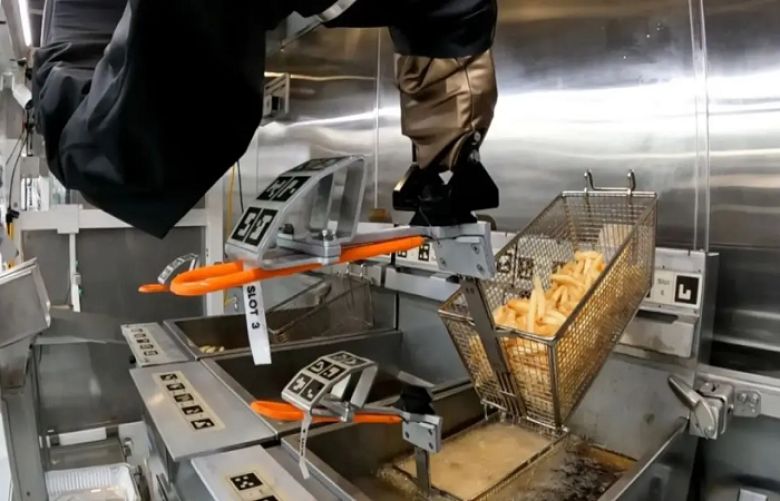As the world has already seen the arrival of robots in different industries, including health, filmmaking and automobiles, among others, the culinary industry becomes the latest addition to the list as the world's first-ever AI-powered restaurant landed in the United States' Southern California city.
The fully autonomous restaurant, CaliExpress, opened in Pasadena in late December and quickly became a burger-flipping phenomenon, according to US media.
The group behind the dystopian project, Cali Group, set up the shop after partnering with Miso Robotics, which previously launched the world's first AI-powered fry station, Flippy.
The holding company also partnered with PopID, a tech company that utilises biometrics for ordering — a triple collab the Terminator would be gleaming over.
The restaurant utilises some of the most innovative tech currently available to fully automate all its fry and grill stations which guests can even peek in on as the robots prep their custom orders, in a "pseudo-museum experience."
"To our knowledge, this is the world's first operating restaurant where both ordering and every single cooking process are fully automated," John Miller, CEO of PopID and board member of Miso Robotics, said in a press release.
He added: "The marriage of these various technologies to create the most autonomous restaurant in the world is the culmination of years of research, development, and investment in a family of revolutionary companies."
According to reports, the area is furnished with moving robot arms from "retired" Flippys, experimental 3D-printed "artefacts," and pictures on display.
The CEO of Miso Robotics, Rich Hull, makes sure that the restaurant is anything but boring.
"AI-powered, robotic order-taking and cooking enables the major chains that feed America to substantially improve quality, consistency and speed," Hull said.







